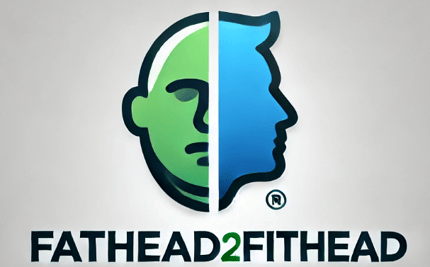CREATE YOUR OWN WEBSITE WITHIN 2 MINUTES USING AI WITH 20% OFF TODAY WITH HOSTINGER! 👉CLICK HERE!
Fasting Explained: How It Works, Benefits, and How to Start Today
What is Fasting? Fasting means not eating for a period of time. It’s that simple. Your body takes a break from digesting food and starts using stored energy instead. People fast for different reasons—health, weight loss, or even spiritual growth. Fasting has been practiced for thousands of years. Many religions include fasting as part of their traditions. But today, science is proving that fasting has powerful effects on health, weight loss, and even aging.
FASTING
Philip DEVILLE
2/21/20255 min read


Fasting Explained: How It Works, Benefits, and How to Start Today?
What is Fasting?
Fasting means not eating for a period of time. It’s that simple. Your body takes a break from digesting food and starts using stored energy instead. People fast for different reasons—health, weight loss, or even spiritual growth.
Fasting has been practiced for thousands of years. Many religions include fasting as part of their traditions. But today, science is proving that fasting has powerful effects on health, weight loss, and even aging.
How Does Fasting Work?
When you eat, your body breaks down food into glucose (sugar). Your body uses glucose for energy. But when you stop eating, your body runs out of glucose and starts burning fat for fuel instead. This process is called ketosis.
During fasting, your insulin levels drop. Lower insulin levels allow your body to burn stored fat. This is why fasting helps with weight loss.
Another process that happens during fasting is autophagy. This is your body's way of cleaning out old and damaged cells. It helps prevent diseases and can even slow down aging.
Benefits of Fasting
Fasting is more than just weight loss. It has many health benefits:
1. Weight Loss
Fasting helps your body burn fat. When you don’t eat, insulin levels drop, and fat-burning increases. Plus, fasting helps control hunger by reducing cravings and stabilizing blood sugar.
2. Better Brain Function
Fasting increases a hormone called BDNF (Brain-Derived Neurotrophic Factor). This helps with memory, learning, and brain health. Some studies show fasting may even help prevent diseases like Alzheimer’s and Parkinson’s.
3. Reduces Inflammation
Chronic inflammation leads to diseases like heart disease, diabetes, and cancer. Fasting lowers inflammation and helps your body heal itself.
4. Improves Heart Health
Fasting reduces risk factors for heart disease. It lowers blood pressure, cholesterol, and blood sugar levels.
5. Regulates Blood Sugar and Prevents Type 2 Diabetes
Fasting improves insulin sensitivity. This helps your body use insulin better and lowers the risk of type 2 diabetes.
6. Increases Longevity and Anti-Aging Effects
Studies show that fasting may help people live longer. This is because it triggers autophagy, which removes damaged cells and keeps the body young.
7. Boosts Human Growth Hormone (HGH)
HGH is important for muscle growth, fat loss, and overall health. Fasting increases HGH levels, making it easier to build muscle and burn fat.
GET YOUR FREE WORKOUT ROUTINE FOR BIG PEOPLE HERE!
Different Types of Fasting
There are many ways to fast. You don’t need to go days without food. Here are the most popular methods:
1. Intermittent Fasting (IF)
This is the most common type of fasting. You eat within a set time window each day and fast for the rest.
16/8 Method: Fast for 16 hours, eat in an 8-hour window.
18/6 Method: Fast for 18 hours, eat in a 6-hour window.
20/4 Method (OMAD - One Meal a Day): Fast for 20 hours, eat in a 4-hour window.
2. 24-Hour Fasting (Eat-Stop-Eat)
You fast for 24 hours once or twice a week. For example, if you eat dinner at 7 PM, you don’t eat again until 7 PM the next day.
3. 5:2 Diet
Eat normally for 5 days, then eat 500-600 calories for 2 non-consecutive days per week.
4. Extended Fasting (48-72 Hours)
This is a longer fast, usually 2-3 days. It is great for deep cellular repair and fat burning but should be done carefully.
How to Start Fasting
Starting fasting is easier than you think. Here’s a simple guide to begin:
Step 1: Choose Your Fasting Method
Pick one that fits your lifestyle. The 16/8 method is a great place to start.
Step 2: Stay Hydrated
Drink lots of water, black coffee, or herbal tea. This helps reduce hunger and keeps your body working properly.
Step 3: Eat the Right Foods
When you do eat, focus on healthy, whole foods:
Healthy fats (avocados, olive oil, nuts, real butter...
Protein (chicken, beef, eggs, fish...
Low-carb vegetables (broccoli, spinach, cauliflower...
Step 4: Avoid Sugary and Processed Foods
Stay away from sugar, bread, pasta, and processed snacks. These foods can make fasting harder by causing cravings.
Step 5: Listen to Your Body
It’s normal to feel hungry at first, but your body will adjust. If you feel dizzy or weak, drink water and rest.
GET YOUR FREE WORKOUT ROUTINE FOR BIG PEOPLE HERE!
Common Fasting Myths (And the Truth)
Myth 1: Fasting Will Make You Lose Muscle
Truth: Fasting actually protects muscle by increasing growth hormone levels.
Myth 2: Fasting Slows Down Your Metabolism
Truth: Short-term fasting boosts metabolism, helping you burn more fat.
Myth 3: You Need to Eat Every 3 Hours
Truth: Your body is designed to go without food for long periods. Eating frequently is not necessary for health.
Myth 4: Fasting is Starvation
Truth: Starvation is long-term lack of food, while fasting is controlled and temporary.
Who Should Avoid Fasting?
Fasting is safe for most people, but some should be careful:
Pregnant or breastfeeding women
People with eating disorders
Those with severe medical conditions (check with a doctor first)
Final Thoughts: Why You Should Try Fasting Today
Fasting is one of the simplest and most effective ways to lose weight, improve health, and boost energy. It’s free, natural, and easy to start.
If you’ve struggled with dieting, give fasting a try. You might be surprised at how good you feel!
Are you ready to start? Pick a fasting method, stay hydrated, and enjoy the benefits of fasting today!
Q&A: Common Questions About Fasting
1. Will I feel hungry all the time?
At first, yes. But after a few days, your body adjusts, and hunger fades. Staying hydrated helps a lot.
2. Can I drink coffee or tea while fasting?
Yes! Black coffee, tea, and water are all allowed and can even help reduce hunger.
3. Does fasting slow down metabolism?
No. Short-term fasting actually boosts metabolism and helps with fat burning.
4. Can I work out while fasting?
Yes! Many people find they have more energy for workouts while fasting. Strength training and cardio are both great choices.
5. Is fasting safe for everyone?
Most people can fast safely, but pregnant women, people with eating disorders, and those with serious medical conditions should talk to a doctor first.
6. What if I get really hungry?
Drink water, tea, or coffee. Sometimes, hunger is just boredom or dehydration. It will pass.
7. How long does it take to see results?
Most people start noticing changes in one to two weeks. Weight loss, mental clarity, and more energy happen quickly.
Final Thoughts: Why You Should Try Fasting Today
Fasting is one of the simplest and most effective ways to lose weight, improve health, and boost energy. It’s free, natural, and easy to start.
If you’ve struggled with dieting, give fasting a try. You might be surprised at how good you feel!
Are you ready to start? Pick a fasting method, stay hydrated, and enjoy the benefits of fasting today!
## ⚠️ Disclaimer
⚠️ Always consult your doctor before starting a new fitness routine or diet plan. Ensure this workout is safe for you before beginning.
GET YOUR FREE WORKOUT ROUTINE FOR BIG PEOPLE HERE!
## 🧘 Stretching
✅ Always finish with stretching to improve flexibility and prevent injuries. Go easy in the beginning! 🙆♂️
Written by Philip DEVILLE




Support
Join our community for weight loss support.
DISCLAIMER
JOIN MY COMMUNITY NOW!
We are affiliates. It means that we might receive a commission if you ever buy a product on our website, with no extra cost for You of course.
These articles are for informational purposes only and is not medical advice. Fasting and any diet changes may affect individuals differently. Always consult with a qualified healthcare professional before starting any fasting plan, diet, or weight loss program, especially if you have pre-existing health conditions or take medications. Results vary, and this content is based on personal experience and research. Your health and safety come first! 🚀🔥
Thank You very Much!
© 2025. All rights reserved.
